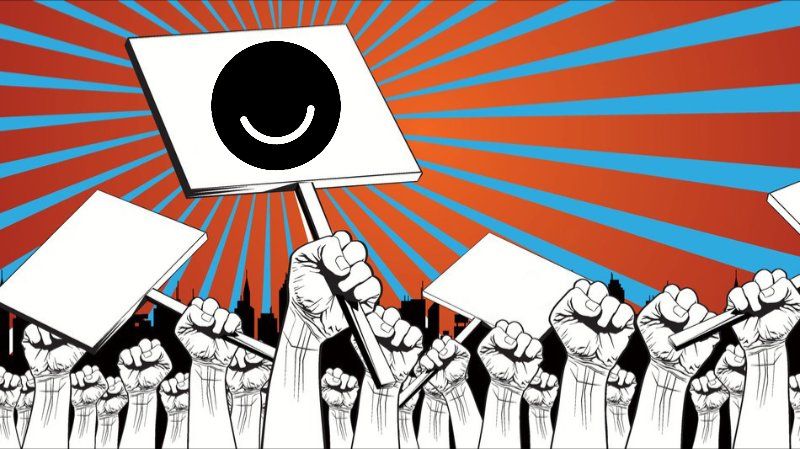Ello isn't going to work: Six things it doesn't address.

Cross-posted with The Huffington Post.
Why are people excited about Ello? Because they can’t wait to leave Facebook. Why do so many people want off Facebook? That’s the problem: everybody has a different reason.
Ello is a new social network that has caught fire with a manifesto telling users that “we believe a social network can be a tool for empowerment. Not a tool to deceive, coerce and manipulate — but a place to connect, create and celebrate life. You are not a product.” (I’ve got invites, send me a message if you want one.)
It’s exciting. We’re all sick of being serfs on corporations’ land. We don’t like our passwords being stolen, our movements being tracked, and the fact that data about us is sold and traded. But let’s take a look at exactly what we are dissatisfied with, what Ello is offering, and what we might be taking for granted about Facebook.
It seems that dissatisfaction with Facebook is deeper and more complex than just that. People say they hate Facebook, but what we think we dislike about Facebook is often a proxy for the things we don’t like about technology, our friends, or communities in general.
When you sell yourself as a better Facebook, people are going to come with a lot of demands. Here are a few that Ello doesn’t address:
- Privacy. Ello is currently a public social network. Tiara, an anonymous blogger, has already slammed Ello in an anti-manifesto about the site’s lack of privacy features. This may have been by design — it’s hard to know, but Ello rapidly responded by emailing all its members promising privacy controls. For some, they won’t be fine-grained enough. For others, they will be too hard to use.
- Personal branding. Facebook has inserted a defensive layer of conscious self-styling. As some users clamor for likes, others feel pressured to do so. Many who leave Facebook feel like they are sloughing off a tremendous burden.
- Distraction. Facebook pulls us away from real life. But what’s the alternative, a social network that isn’t addictive? That doesn’t send us notifications? Will it get used then? (RIP Google Reader, which was this and got used. I don’t see it returning.)
- Commodification. Okay, so advertisers can’t buy ads directly from Ello, but they can still maintain profiles and put out commercial, but entertaining, content. What about your friends hawking their movies and products? Is Ello against commodification, or only in this one narrow sense?
- Your friggin data. The minute you click on a Buzzfeed quiz shared on Ello, they are tracking your every move. Your public posts are visible and harvestable.
- Control of your life. Some people don’t want their chat, calendar, contacts, news, and journal on the same platform. Some do. How do you decide which way to go?
It’s not that I want Ello to fail, just that I think it is bound to. But if they want democracy — if they truly want “the people who make things and the people who use them [to] be in partnership” — then they will have to solve a lot of HARD community issues that go far beyond rallying people to leave Facebook, and are necessary to make a good community and website:
- Filtering. A social network that doesn’t filter posts is not fun to use — we want to see posts that are important to us. Do the filtering algorithms go under community scrutiny? Who gets to vote? Wikipedia is an example of an online community that has thought long and hard about who gets to decide, and has come up with some labyrinthine and still unsatisfactory answers.
- External apps’ access to user data. A lot of people hate Facebook login because it shares data about them among companies — but it’s also tremendously useful. Can iPhoto access your Ello friends network for you to tag friends? If iPhoto is allowed, then MoveOn.org will be able to build an app that downloads your friends list too. There’s a direct tradeoff between functionality and access to data.
- Spam profiles. Combatting spam is hard: you’re either charging people $1 to send a message sometimes, or letting suspicious messages through, or creating an “Other” folder that nobody knows about. You’re either forcing people to use their real names, or leaving people to have their photos stolen, profiles copied, and allowing fake accounts to exist. Again, who decides these things?
- Security. How hack-proof is Ello? Is the code going to be open sourced? How will we know if/when they are working with the NSA?
- Features and stability. Everything on Facebook works and is updated frequently. It takes a lot of money and developers and creativity to build a site like Facebook.
Personally, I think the people at Facebook made a stellar product. It’s creepy how much they know about us, even creepier how much they care about this information, and scary that they are sharing it with governments. But it’s also wonderful to be able to find nearly anyone in the world, contact them immediately, set up events, share media, etc. They have build a robust, incredibly impressive and functional platform that gets better every day. So in addition to solving some hard community issues, the folks at Ello will have to at least partially match the Facebook featureset and polish, all with no money from advertisers.
Perhaps if they made some bold decisions about community governance, then open-sourced the code for feature development and security auditing (closer to the approach of now-nearly-defunct Diaspora), they could hope to accomplish some of the above. But these are harder problems than they are admitting.
What do you think? Does Ello have a chance?
